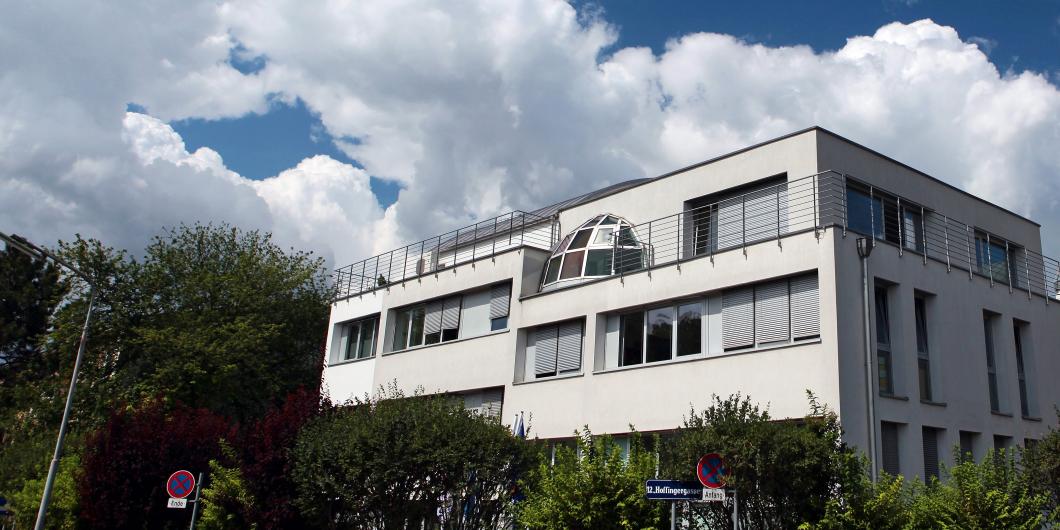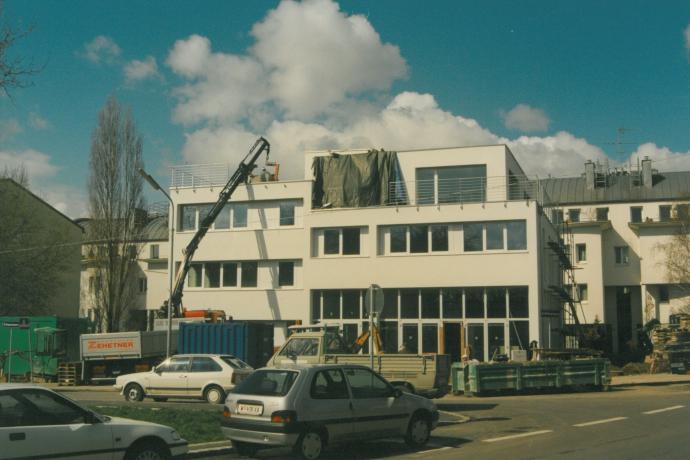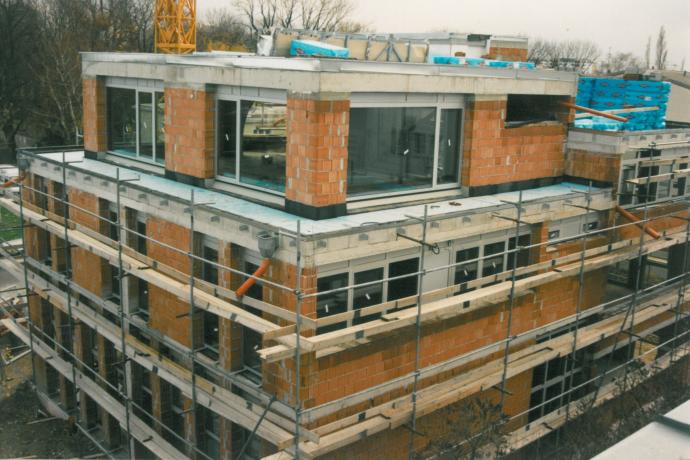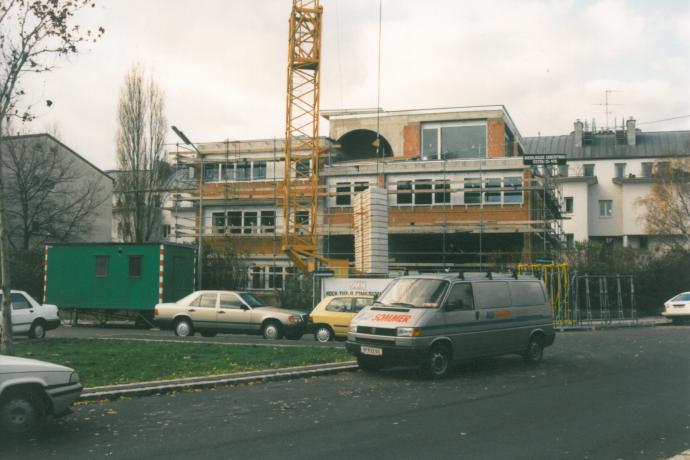The first EHF office opened on 1 September 1992 in the Austria Trend Hotel Bosei in a rented office in Gutheil Schoder Gasse in the tenth district of Vienna, Austria.
With just two people with an office each, it was not too lon before more offices had to be rented and not too much longer before it had become obvious that the EHF had outgrown its surroundings.
One and a half years later, the EHF moved into the traditional Japanese Tea House owned by the hotel, which is still there to this day. This new home was to become only a temporary stopgap however and in 1996 the decision was made that a bigger office had to be found.
In 1996 at the 3rd Ordinary EHF Congress in Greece, it was confirmed by the Executive Committee that the EHF should buy a piece of land and build up its own headquarters with the precondition of not moving too far away from their current location due to the hotel proximity and transport links.
After many sites in Vienna and with many locations being rejected due to logistical inconsistencies, a piece of land was identified. With a good cooperation with the Gartenhotel Altmannsdorf already in place, the plot with the address Hoffingergasse 18 in the 12th district of Vienna was chosen and acquired.
The new location also matched pre-conditions set by the EHF Executive as it was only 2km away from the original office at the Hotel Bosei. Construction began in 1997.
The building of the new EHF headquarters was under the total control of the staff members who would be working there. Plans presented to the Executive Committee included good working conditions, with lots of light and an open feel with mezzanines rather than full traditional floors to make communication and contact easy. The Secretary General office would even have a handball roof over the meeting area after the architect proposed a symbol of the sport should be incorporated into the design.
Meetings took place with authorities and local residents during the construction and the new building eventually opened in May 1998 to house nine staff with a celebratory house warming party including invited member federations attending soon after.
Further expansion
However, the office needed to expand twice over the following years, with large-scale enlargement that was initially protested at by local residents objecting to potential sunlight infringement, but this was quickly smoothed over as Michael Wiederer, a local resident himself, ensured that all queries and concerns were engaged and rectified in his role as the EHF representative on the project.
The staff increases and subsequent office increase over the past 20 years is a clear sign of the progress that European handball, has made as the EHF Congress and EHF Executive Committee give the EHF more tasks such as new competitions, development projects, methods and everything else in between.
These new tasks naturally result in new people being needed as the EHF requires even more resources to complete what is asked of it.
EHF Office on Hoffingergasse before it was extended again to provide additional office space
EHF Office today
From not even owning a sheet of paper in 1991, today, the EHF and its subsidiary EHF Marketing employ a staff of 57 from 17 nations in the southwest of Austria‘s capital. Conversations are therefore held not only in typically Viennese dialect, but also in the Hungarian, Danish, French, Serbian and Polish languages and, most importantly, in English.
The EHF headquarters is an exciting melting pot of languages, mentality, cultures. This was a set goal of the organisation from the very beginning. It was clear, that due to the nature of the business that the EHF would not be able to exist with only a home-grown team. It is integral to bring in people from different countries in order to understand what is happening there, to use their language and cultural skills for the betterment of handball across Europe.



 Construction of the EHF office in 1997/98
Construction of the EHF office in 1997/98
 Construction of the EHF office in 1997/98
Construction of the EHF office in 1997/98
 Construction of the EHF office in 1997/98
Construction of the EHF office in 1997/98